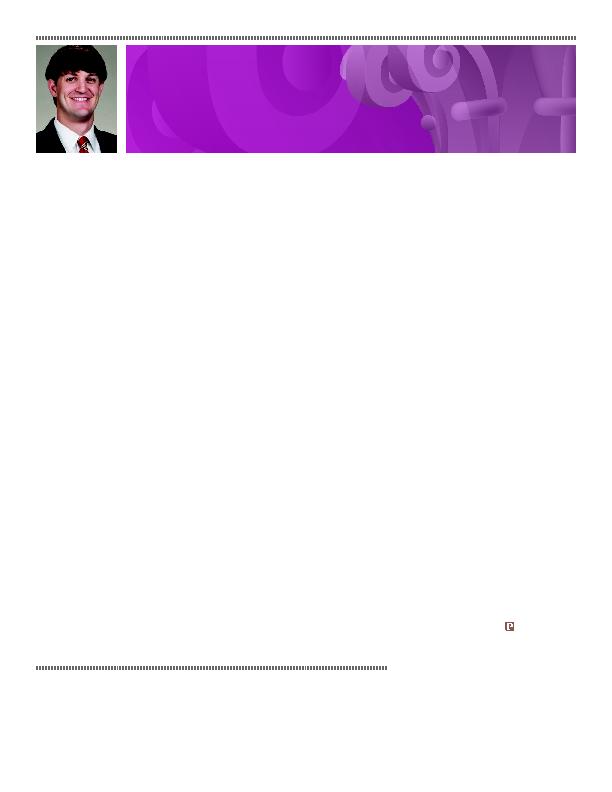
Social Media Will Your State Be Next?
entertainment law and construction defect litigation. He regularly
provides updates on social media policies, Americans with Disabilities
Act regulations and other employment matters on South Carolina
Employment Law Alerts.
1330 Lady Street, Suite 601
Columbia, South Carolina 29201
803.255.0409 Phone
803.771.4484 Fax
cappleby@collinsandlacy.com
www.collinsandlacy.com
state in the nation to ban employers from
requesting access to the social media ac-
counts of employees and job applicants.
The new legislation was passed by the
Maryland General Assembly on April 7
and only requires the governor's signa-
ture before becoming law. It prohibits
employers in both the private and public
sectors from requiring or seeking user
names, passwords or any other means of
accessing personal Internet sites such as
Facebook as a condition of employment.
See, S.B. 433 and H.B. 964.
The American Civil Liberties Union
(ACLU) of Maryland was a big sup-
porter of the legislation. Maryland ACLU
legislative director Melissa Goemann
stated the prohibition "is a really posi-
tive development because the technol-
ogy for social media is expanding every
year, and we think this sets a really good
precedent for limiting how much your
privacy can be exposed when you use
of Commerce, on the other hand, opposed
the prohibition because the bills did not
acknowledge there could be legitimate
issues for some employers to want to re-
view applicants' or workers' social media
messages.
While employers may not seek
usernames and passwords from employ-
ees' personal Internet sites, the bills do
allow employers to require employees
to provide passwords and login informa-
tion for non-personal accounts that are
part of the employer's own systems, such
as company e-mail accounts. In addi-
tion, the bills prohibit employees from
downloading "unauthorized employer
proprietary information or financial data"
to personal accounts or to websites, and
it allows employers to investigate these
activities to ensure "compliance with
applicable securities or financial law or
regulatory requirements."
While Maryland is the first to pass
this type of legislation, other states will
surely follow. Michigan (H.B. 5523),
2060), New York (S.B. 6938), South
Carolina (H.B. 5105) and Washington
(S.B. 6637) all have similar bills
introduced. In addition, it is rumored
lawmakers in Congress are working on
legislation that would ban the practice
nationally. United States Senators
Richard Blumenthal, D-Conn., and
Charles E. Schumer, D-N.Y., even
called on the U.S. Equal Employment
Opportunity Commission and the U.S.
Department of Justice to launch a federal
investigation into the emerging trend
among employers. Schumer said in a
statement, "Employers have no right to
ask job applicants for their house keys
or to read their diaries why should they
be able to ask them for their Facebook
passwords and gain unwarranted access
to a trove of private information about
what we like, what messages we send to
people, or who we are friends with?"
Will Congress ban the practice
nationally or will your state enact its own
legislation? Stay tuned.